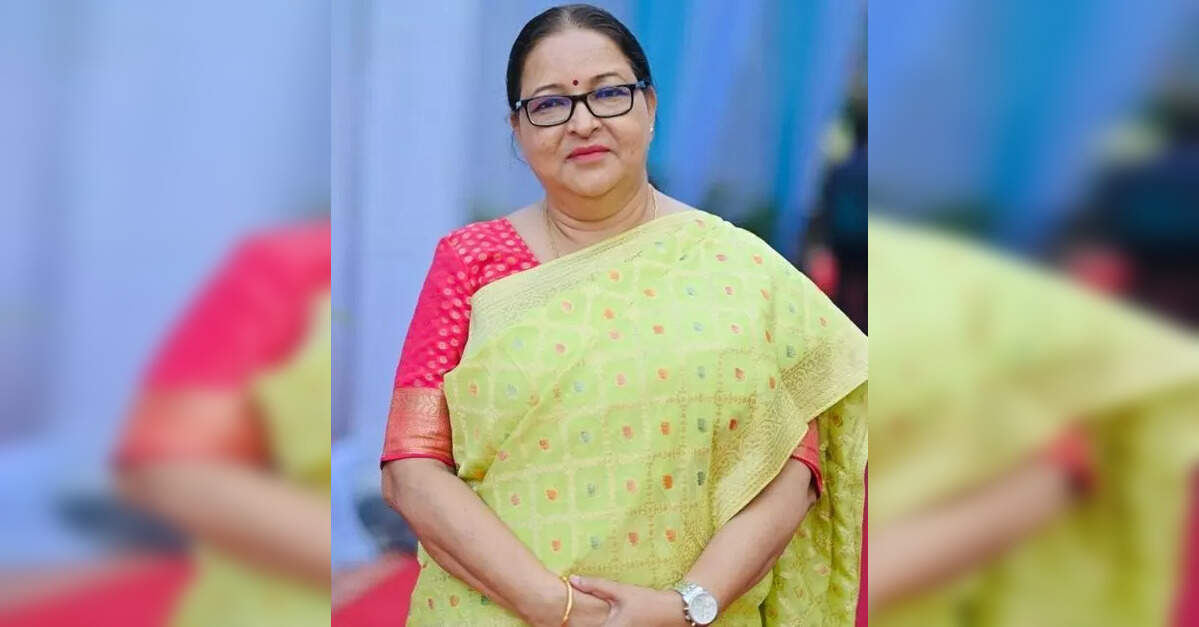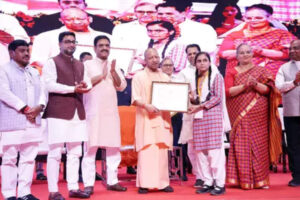
Why empowering teachers is crucial to raising champions of tomorrow, ETEducation

Authored by: Sasmita Mohanty
Education is a never-ending process, from traditional methods to digitally empowered classrooms; it has witnessed a remarkable shift in recent years, propelled by the ambitious National Education Policy (NEP) 2020. However, estimates suggest that there is currently a shortage of skilled teachers, with 1.5 million jobs vacant in the sector, particularly in rural areas. The government of India reported a shortage of over 7,22,413 teachers at the elementary level and 1,24,262 teachers at the secondary level in December 2023. These are not just mere numbers; they raise an alarming concern about the lack of quality education and require urgent action. It is the need of the hour for teachers to keep upskilling themselves in this rapidly changing phenomenon to create champions for tomorrow, as they are not just teachers teaching particular subjects or curriculum, but mentors, facilitators, nation-builders, and key influencers within society. According to UNESCO, India needs over 11 lakh additional teachers by 2030 to meet the learning goals! As India is striding towards Viksit Bharat 2047, robust reforms and initiatives for teacher training will play a crucial role in delivering inclusive, tech-driven, and globally aligned learning and in achieving the ambitious goals of the vision. The Union Budget 2025-26 has laid a remarkable groundwork for the upskilling of teachers in digital tools, AI-driven assessments, and adaptive learning platforms, representing a seismic shift toward tech-enabled teaching.
Progress so far
Initiatives such as the National Education Policy (NEP) 2020, National Integrated Teacher Training Programme (ITEP), digital teacher training through DIKSHA, SWAYAM, and NISHTHA, Globalisation of Pedagogy, and Multidisciplinary and Co-located TEIs are playing a crucial role in empowering them to lead the change. These ongoing efforts acknowledge the existing barriers and will play a key role in supporting them for professional development.
Estimates suggest more than 70 lakh teachers have been trained through DIKSHA, SWAYAM, and NISHTHA, reflecting a remarkable improvement towards tech-based and futuristic learning ecosystems. Whereas, the nation has also witnessed a 31% rise in International Baccalaureate (IB) schools from 2019 to 2023, highlighting an increasing demand for globally relevant teaching competencies.
Empowering teachers: Know the whys and hows!
Despite the ongoing efforts by the government and educational institutions to promote the empowerment of teachers, several significant barriers continue to hinder progress. More than 250 million children rely on highly skilled and well-equipped teachers to achieve foundational literacy and numeracy by 2026-27. However, most of the teachers are still struggling with poor quality, outdated pedagogy, and a lack of practical training. Many teachers find themselves navigating a maze of administrative hurdles that can be time-consuming and frustrating. The lack of adequate resources, both in terms of materials and support, further complicates their ability to teach and learn effectively. Moreover, as new technologies and pedagogical approaches emerge, they often struggle to grasp these innovations, leading to challenges in integrating them into their teaching practices.
By fostering an environment where students are encouraged to take on responsibilities and think critically, empowered teachers can nurture the leadership qualities that will define the champions of the future. This is why there is a need for a robust teacher-training program and strategies to navigate these barriers. There are numerous ways we can do that! First and foremost, amongst them is the collaboration of industry leaders and policymakers along with the educational institution. Moreover, some of the key recommendations are mentioned below:
- By restructuring the Bachelor of Elementary Education (B.El Ed) to align with foundational years for children aged 3 to 8 and adopting a multidisciplinary model by the National Education Policy (NEP) 2020, a roadmap to more inclusive and enhanced pedagogies is provided.
- Ensuring the quality of Teacher Education Institutions (TEIs) is also very important; this can be achieved by mandating NAAC/NCTE accreditation, implementing live dashboards for compliance, and conducting periodic performance audits.
- Integrating artificial intelligence (AI), machine learning (ML), robotics, and multilingual tools into B. Ed and M.Ed. programs, while encouraging the creation of teacher-generated digital content, are crucial.
- Practical training needs to be intensified by extending internships to a minimum of 20 weeks and fostering school-university partnerships that provide effective mentorship.
- To make the teaching profession more attractive, it is necessary to improve salary parity with other fields, expedite promotion pathways, and create leadership opportunities for teachers.
- Establishing a National Professional Standards for Teachers (NPST) framework will facilitate career progression, recognition, and accountability.
- Promoting equity and gender inclusion by incentivising women from rural and tribal backgrounds to join teacher training institutions is essential for a diverse and future-forward educational ecosystem.
Overall, these initiatives will not only empower teachers but also enrich classroom experiences by cultivating a culture of innovation and continuous improvement in education. The future of the educational landscape in India looks promising, as the integration of technology will not only reshape the curriculum but also the role of teachers will evolve beyond academic teaching or traditional learning.
The author is the Director and Principal at Sanjay Ghodawat International School, Kolhapur, Maharashtra
DISCLAIMER: The views expressed are solely of the author and ETEDUCATION does not necessarily subscribe to it. ETEDUCATION will not be responsible for any damage caused to any person or organisation directly or indirectly.
Source link


